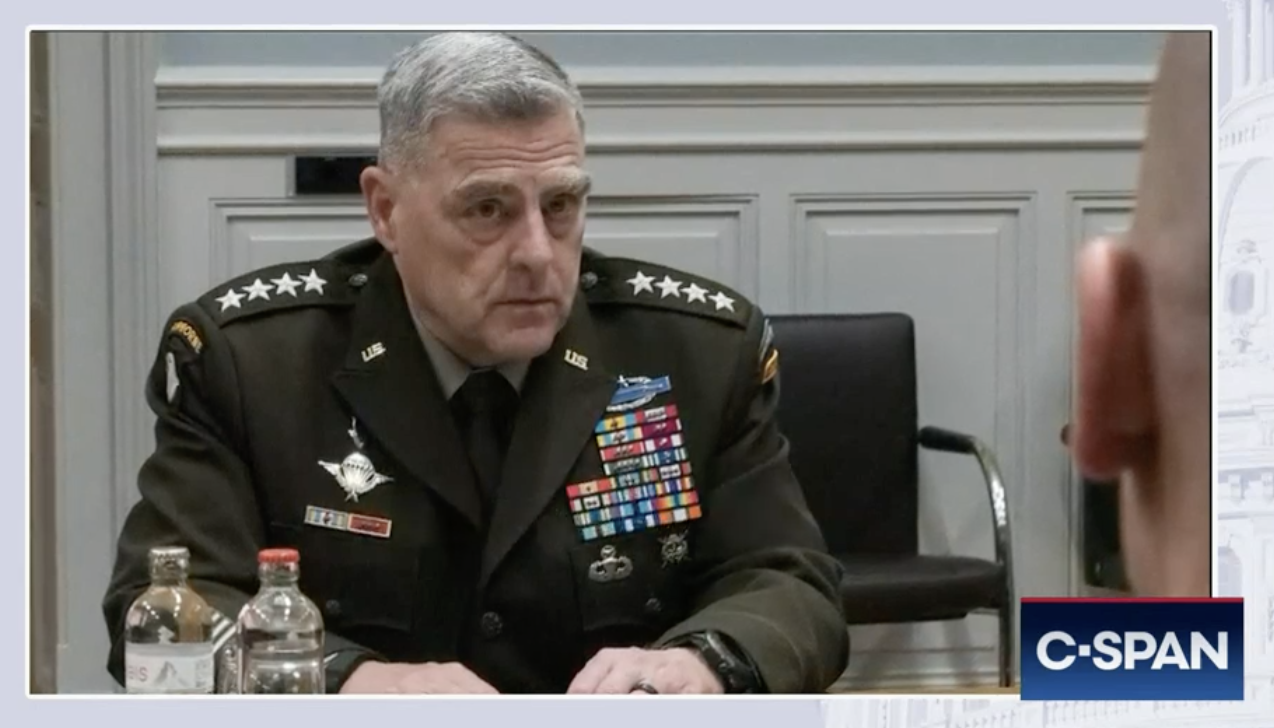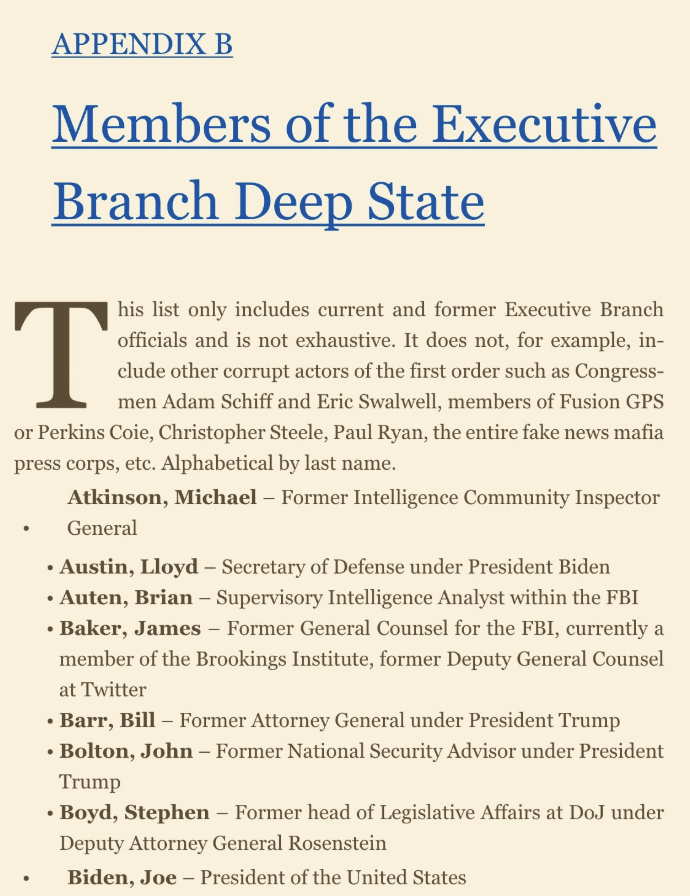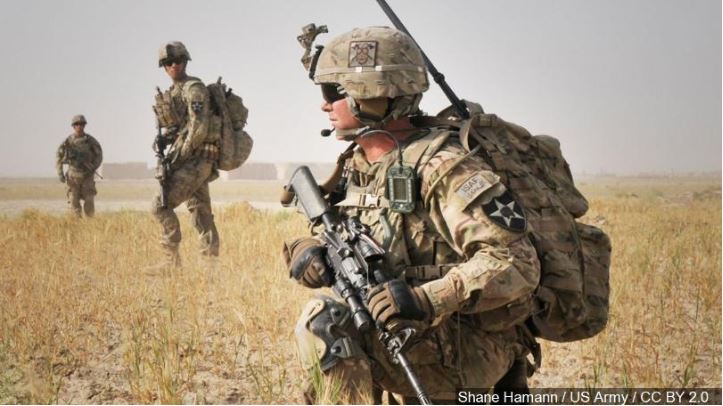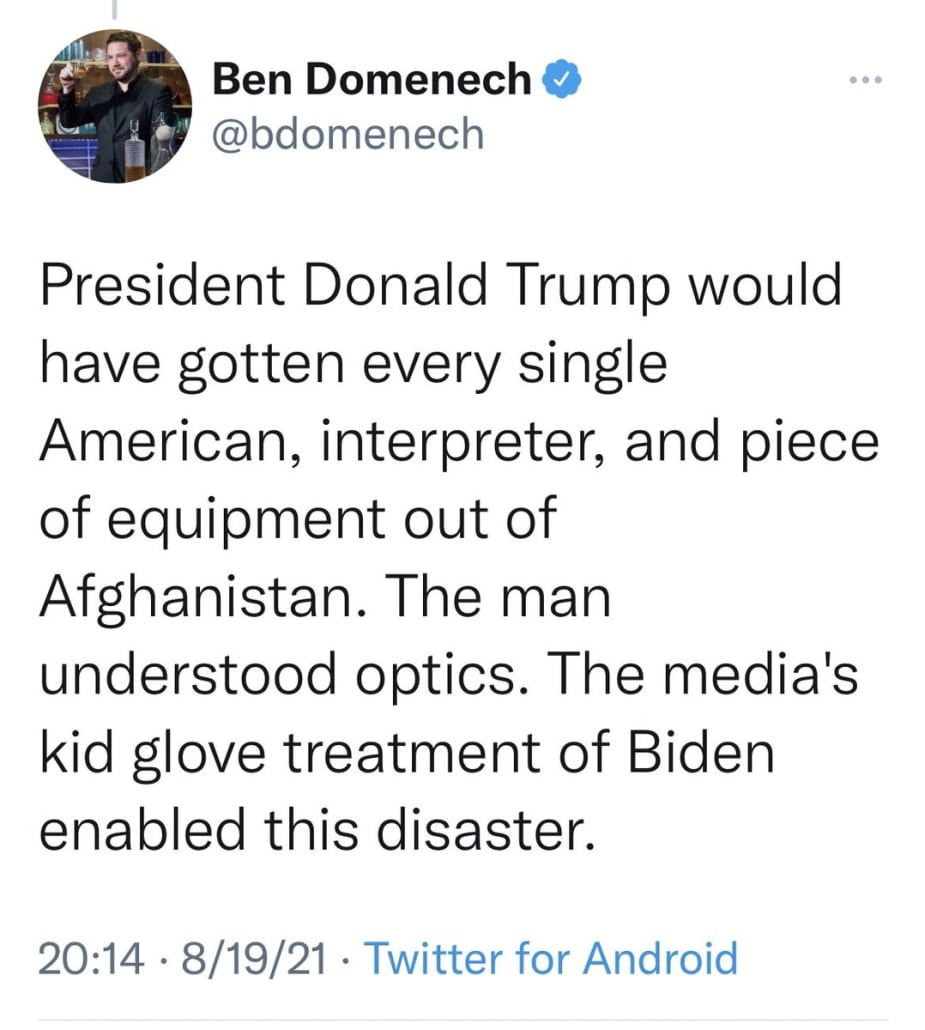You Can’t Pardon America’s Way Out of Trump’s Assault on Rule of Law
The NYT has matched Jonathan Martin’s reporting that Biden’s aides are considering pardoning some subset of the people who will be targeted by Trump.
Those who could face exposure include such members of Congress’ Jan. 6 Committee as Sen.-elect Adam Schiff (D-Calif.) and former GOP Rep. Liz Cheney of Wyoming. Trump has previously said Cheney “should go to Jail along with the rest of the Unselect Committee!” Also mentioned by Biden’s aides for a pardon is Anthony Fauci, the former head of the National Institute of Allergy and Infectious Diseases who became a lightning rod for criticism from the right during the Covid-19 pandemic.
The West Wing deliberations have been organized by White House counsel Ed Siskel but include a range of other aides, including chief of staff Jeff Zients. The president himself, who was intensely focused on his son’s pardon, has not been brought into the broader pardon discussions yet, according to people familiar with the deliberations.
The conversations were spurred by Trump’s repeated threats and quiet lobbying by congressional Democrats, though not by those seeking pardons themselves. “The beneficiaries know nothing,” one well-connected Democrat told me about those who could receive pardons.
Smart lefty commentators are embracing the concept.
With the possible exception of Mark Milley, I think this is an exceedingly stupid idea. It’s the kind of magical pony thinking that led people to demand Merrick Garland, with no effort from them, make Trump go away, thereby ceding the ground for Trump to claim he was prosecuted in a witch hunt.
And it won’t work.
Biden’s pardon won’t even save Hunter Biden
Start with the fact that Biden’s pardon won’t even save his own son.
Sure, it’ll save him from going to prison for the crimes for which he was convicted.
But it might not even insulate him and his team from further harassment. That’s true, first of all, because prosecutors have continued to pursue an investigation — no doubt facilitated by the House investigation into Hunter — into whether Kevin Morris’ support for Hunter in 2020, as he was trying to sustain sobriety, amounted to a campaign benefit for Joe Biden.
While pursuing the false allegations of foreign-influence wrongdoing led nowhere, the Special Counsel seems to have given in to other demands to expand his investigation of Hunter, his family, and those close to them. Throughout 2024, Special Counsel prosecutors have sought information about financial support Hunter received in 2020 and 2021 around the time of the 2020 presidential election and questioned whether such support could be deemed improper political contributions. This latest inquiry is the exact demand that the disgruntled IRS agents alluded to in their statements to congressional committees and the media.92 The results of this investigation expanding—the theory of which was rejected in the case of former Senator John Edwards93—are nevertheless likely to be a focal point of any final report the Special Counsel prepares for Congress, which will no doubt result in more demands for baseless charges against Hunter.
Nothing in Hunter’s pardon protects Morris or, through him, Abbe Lowell. Indeed, I expect this prong of the investigation is one reason prosecutors fought to terminate Hunter’s prosecution, rather than dismiss the indictment: because it would make it easier to use the prosecution to show some benefit.
Plus, as far as I know, David Weiss will still have his Special Counsel report to write up, and because Alexander Smirnov has his existing false statement charge and a new tax indictment ahead of him (to say nothing of an appeal of David Weiss’ Special Counsel appointment under the same argument via which Trump got his own documents case dismissed), the report will go to Pam Bondi and not Merrick Garland. So Hunter can expect to be dirtied up some more in that report.
More importantly, House Republicans have already floated bringing Hunter in for more testimony. In recent years, the House GOP has spun entirely free of gravity and facts, so it would (and did, particularly in their referral of Hunter’s uncle Jim) take little to refer Hunter for prosecution on false statements.
Nothing about Hunter’s pardon will prevent Republicans from inventing new crimes going forward.
That’s true of anyone on a list. If you pardon Anthony Fauci, nothing prevents Congress from calling him to testify again to invent some new reason to prosecute him.
There are too many targets to play whack-a-mole
Another reason pardoning your way out of this problem won’t work is because there is an infinite supply of potential targets, but a finite attention span with which to protect them. As I noted, the Kash Patel enemies list on which the discussion is focused is dated; it excludes three of the names — Jack Smith, Liz Cheney, and (even!) Anthony Fauci — that, per NYT, are at the center of the discussion (Adam Schiff and Mark Milley are on there). Mike Flynn has his own list. Random mobs of MAGAts also have their own.
Olivia Troye, Kash’s current focus, is (as far as I know) on none of them.
Much of this discussion simply disappears most of the people who’ve already gone though this, who will continue to be targeted so long as there’s utility to it.
Importantly, the more invisible or easily dehumanized targets are, the easier they will be to take down.
Jack Smith, Liz Cheney, Anthony Fauci, Adam Schiff, Mark Milley? They’re all people that some very powerful people will fight for, or at the very least be discomforted as they watch passively. Those would be the easiest cases to defend.
There are legal privileges to protect
One reason, for example, that Adam Schiff”s targeting might discomfort those who absolutely loathe him is because, to punish him for his imagined sin — speaking openly of Trump’s “collusion” with Russia in 2016 and daring to pursue him in impeachment after impeachment — would solidly be protected by Speech and Debate. The same is true of Liz Cheney.
To go after Adam Schiff for his imagined crimes, you’d have to rely on litigation approaches that might make — say — Mitch McConnell queasy.
Which may be one reason Schiff told Politico he thinks the whole idea is unnecessary.
“I would urge the president not to do that,” Schiff said. “I think it would seem defensive and unnecessary.”
Plus, the opinion via which Scott Perry protected many of the communications from his phone was signed by Karen Henderson, Greg Katsas, and Neomi Rao, the latter of whom are Trump appointees.
The same is true for Jack Smith (or Jay Bratt, whom Republicans also want to target). As prosecutors, they have broad immunity for their actions. That may have its drawbacks. But a whole lot of people who would be reporting to Pam Bondi have a lot invested in defending them.
If you pardon the easiest, highest profile, easily defended targets, you’ll leave weaker targets unprotected.
It would forestall the long overdue defense of rule of law
There’s this fantasy — assisted by shoddy legacy media coverage — that this kind of retaliation didn’t happen in the first Trump Administration.
Peter Strzok and Lisa Page would beg to differ with you.
Andrew McCabe would beg to differ with you.
Marie Yovanovitch would beg to differ with you.
Alexander Vindman would beg to differ with you.
Michael Cohen would beg to differ with you.
Michael Sussmann would beg to differ with you.
Igor Danchenko would beg to differ with you.
Dis- and misinformation researchers would beg to differ with you.
51 spooks who exercised their First Amendment rights would beg to differ with you.
John Bolton would beg to differ with you.
Hunter Biden would beg to differ with you.
Some of these cases got a lot of attention. Michael Cohen has done a superb job of making himself the center of attention; he knows what he’s dealing with. Many got the wrong kind of attention; certain outlets sent rabid packs of 20 journalists to cover the Hunter Biden legal case, without sending a single journalist interested in rule of law.
But Trump’s efforts have been most successful when they didn’t, when all the same people screaming we need to do pardons looked away.
What this moment requires is not a magical pony, some gimmick that will protect the strongest targets while ceding moral high ground, but a return to the work of actually defending rule of law day to day, especially those who are easy to isolate or demonize. This moment also requires actual journalism. I shouldn’t be the only one who cares about Hunter Biden’s due process rights more than his ickiness.
And yes, I realize that means that people will continue to get hurt, just as they’ve been getting hurt going back to 2017. Trust me, like many other people, I’m doing my own risk mitigation for the days ahead.
Pardoning the highest profile likely current targets of Trump capitulates to Trump’s narrative that there is no rule of law, there’s just one party against another. Instead defending the conduct of the people Trump targets takes a lot more work, a lot more courage. But without that work, Trump has won the fight.
Mark Milley’s defense of the Constitution
For most of the targets in question, the story you’d tell would be precisely the one Trump wants you to tell. If you pardon Cheney and Schiff because they investigated Trump, for example, you condone his narrative that that’s a crime.
It’s not.
If you pardon Fauci because he made difficult health insurance according to the best — albeit imperfect — science, you condone the pack of cranks Trump plans to install in every health-related agency.
But Mark Milley is different.
He’s different because the reason why Republicans would target him is that he upheld the Constitution, rather than Trump.
He’s different because he did something crucial — reaching out to his counterparts overseas to deescalate threats of nuclear catastrophe. Republicans want to spin that vital work as treason.
He’s different because a prosecution of Milley will be used as an excuse to deprofessionalize the military officer corps.
And he’s different because Trump might try to target Milley via military justice or might seek penalties not on the table for his other targets.
I don’t know if Milley wants that protection or if, like Schiff, he would prefer to defend his own actions. That’s his business.
The point though is nothing Biden can do will eliminate the risk that Trump will keep doing what he has been doing for eight years. Someone or someones will be that target, and imagining we can make that risk go away, it’ll only lead people to look away again instead of giving the attention the focus that it has lacked.
If we don’t find the solution to that problem, if we seek instead a quick fix, then it’ll get continually harder to defend rule of law as Trump stacks the courts and guts the guardrails at DOJ.
You can’t pardon your way out of Trump’s attack on rule of law. It’s going to take much harder work than that.
Update: Ian Millhiser makes the same argument about the inefficacy of pardons, noting as well that pardons can’t prevent lawsuits or state retribution.




